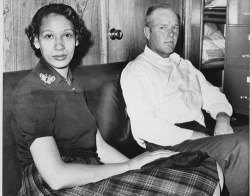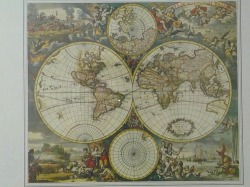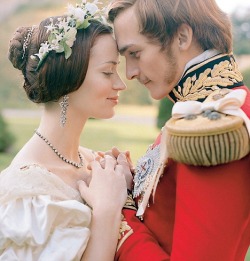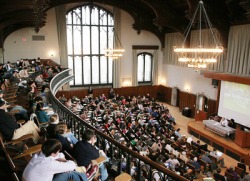Less Ordinary is getting an upgrade thanks to the new availability of certain features on Weebly.com. The changes will be rolling out slowly over the next two months, so please keep checking back. Some of our changes include: - The all-inclusive "Everything Else" tab where you will be able to find our Isms and Quotes, Favorite Links, the Photo Album, and our Public Forum
- We're introducing a brand new page call our "Book Store." Here you will be able to browse through our collection of used books and find great prices on classic tales.
- Current Events has now been switched to a blog for ease of searching and archiving.
We're looking forward to all that these next few months will be bringing. Please stay tuned and keep giving us your feedback. Posted by Amy
I don't think it's a shock to anyone if I say that deep, deep down inside, I am not a nice person. OK, so I can fake being a nice person when the occasion calls for it but deep inside, I am a mean and not so very kind person deep inside. I can usually hide my inner nature by using food like chocolates and pastas (carbs are my friend), lots of coffee and shopping.
But when I am unleashed and lacking sleep, the sleeping demon that is inside me can rear it's ugly head. Let me tell what happened last week. The week before my dad's surgary, I went with him and my mother to go be supportive. And yes, for this I was nice and really supportive.
OK, I guess I have to be specific. I am a good person when it comes to the people I love. If I love someone, I make great huge exceptions. So of course mom and dad count.
So, back to the story. I have been going with mom and dad to the hospital the entire time. And every time I have been there, there has been this really annoying hospital worker that I run into each and every time. This woman bugs the heck out of me because she is so damn nosy! I mean, seriously nosy. Every time she is in the elevator with me, she is always listening in to what other people are saying. And when someone is texting or talking on their mobile, this woman is also butting in. So rude!
OK, what did I do? I was going down to the first floor to get some coffee, 6:45 AM is too early for me. And guess who was the only person in the elevator? Yup, the nosy wench. So what did I do?
Even I have to say, looking back I feel somewhat ashamed. I may have started rocking back and forth in place while I banged my head to the wall behind me. And then, I may have started to start muttering under my breath. And the words I might have said were, "No, no, no. All of you inside my head, just shut up! I am going to have a nice day."
Let's just say she got off on the 7th floor.
Oh my God! This had me laughing for hours! Let Carlton teach us all to dance!
Rainey
It's no secret that I love those crazy guys from Evil Iguana Productions. Here's a little spoof from them about one of the big blockbusters of the summer
Rainey
 I admit it. I am infact a huge history nerd. Actually, I'm such a big history nerd that I am even getting a master's degree so that I can be a bigger history nerd. But guess what? Sometimes history nerds can be very interesting. Or we can delude ourselves that we can be interesting as we spout off history factoids. But I do believe that in this instance, this is a very interesting and touching moment in history. 42 years ago, a case was brought to the United States Supreme Court in 1967. The case of Loving v. VIrginia is a landmark case because it overturned laws against inter-racial marriages that were still in effect in Virginia and in 16 other states.
Here is the actual Supreme Court decision:
RICHARD PERRY LOVING et ux., Appellants,
v.
VIRGINIA
388 US 1, 18 L ed 2d 1010, 87 S Ct 1817
Argued April 10, 1967. Decided June 12, 1967.
SUMMARY The issue presented in the instant case concerned the validity of the Virginia antimiscegenation statutes, the central features of which are the absolute prohibition of a "white person" marrying any person other than a "white person"
A husband, "a white person", and his wife, a "colored person," within the meanings given those terms by a Virginia statute, both residents of Virginia, were married in the District of Columbia pursuant to its laws, and shortly thereafter returned to Virginia, where, upon their plea of guilty, they were sentenced, in a Virginia state court, to one year in jail for violating Virginia's ban on interracial marriages. Their motion to vacate the sentences on the ground of the unconstitutionality of these statutes was denied by the trial court. The Virginia Supreme Court of Appeals affirmed. (206 Va 924, 147 SE2d 78)
On appeal, the Supreme Court of the United States reversed the conviction. In an opinion by WARREN, Ch.J., expressing the view of eight members of the court, it was held that the Virginia statutes violated both the equal protection and the due process clauses of the Fourteenth Amendment.
STEWART, J., concurred in the judgment on the ground that a state law making the criminality of an act depend upon the race of the actor is invalid.
APPEARANCES OF COUNSEL Phillip J. Hirschkop argued the cause for appellants, pro hac vice, by special leave of Court.
Bernard S. Cohen argued the cause for appellants.
R.D. McIlwaine argued the cause for appellees.
William M. Marutani argued the cause for the Japanese American Citizens League, amicus curiae, by special leave of Court.
OPINION OF THE COURT Mr. Chief Justice Warren delivered the opinion of the Court.
This case presents a constitutional question never addressed by this Court: whether a statutory scheme adopted by the State of Virginia to prevent marriages between persons solely on the basis of racial classifications violates the Equal Protection and Due Process Clauses of the Fourteenth Amendment. For reasons which seem to us to reflect the central meaning of those constitutional commands, we conclude that these statutes cannot stand consistently with the Fourteenth Amendment.
In June 1958, two residents of Virginia, Mildred Jeter, a Negro woman, and Richard Loving, a white man, were married in the District of Columbia pursuant to its laws. Shortly after their marriage, the Lovings returned to Virginia and established their marital abode in Caroline County. At the October Term, 1958, the Circuit Court of Caroline County, a grand jury issued an indictment charging the Lovings with violating Virginia's ban on interracial marriages. On January 6, 1959, the Lovings pleaded guilty to the charge and were sentenced to one year in jail; however, the trial judge suspended the sentence for a period of 25 years on the condition that the Lovings leave the State and not return to Virginia together for 25 years. He stated in an opinion that:
"Almighty God created the races white, black, yellow, malay and red, and he placed them on separate continents. And but for the interference with his arrangement there would be no cause for such marriages. The fact that he separated the races shows that he did not intend for the races to mix."
After their convictions, the Lovings took up residence in the District of Columbia. On November 6, 1963, they filed a motion in the state trial court to vacate the judgment and set aside the sentence on the ground that the statutes which they had violated were repugnant to the Fourteenth Amendment. The motion not having been decided by October 28, 1964, the Lovings instituted a class action in the United States District Court for the Eastern District of Virginia requesting that a three-judge court be convened to declare the Virginia antimiscegenation statutes unconstitutional and to enjoin state officials from enforcing their convictions. On January 22, 1965, the state trial judge denied the motion to vacate the sentences, and the Lovings perfected an appeal to the Supreme Court of Appeals of Virginia. On February 11, 1965, the three-judge District Court continued the case to allow the Lovings to present their constitutional claims to the highest state court.
The Supreme Court of Appeals upheld the constitutionality of the antimiscegenation statutes and, after modifying the sentence, affirmed the convictions. The Lovings appealed this decision, and we noted probable jurisdiction on December 12, 1966.
The two statutes under which appellants were convicted and sentenced are part of a comprehensive statutory scheme aimed at prohibiting and punishing interracial marriages. The Lovings were convicted of violating Section 20-58 of the Virginia Code:
"Leaving State to evade law.---If any white person and colored person shall go out of this State, for the purpose of being married, and with the intention of returning, and be married out of it, and afterwards return and reside in it, cohabiting as man and wife, they shall be punished as provided in Section 20-59, and the marriage shall be governed by the same law as if it had been solemnized in this State. The fact of their cohabitation here as man and wife shall be evidence of their marriage."
Section 20-59, which defines the penalty for miscegenation, provides:
"Punishment for marriage.---If any white person intermarry with a colored person, or any colored person intermarry with a white person, he shall be guilty of a felony and shall be punished by confinement in the penitentiary for not less than one nor more than five years."
Other central provisions in the Virginia statutory scheme are Section 20-57, which automatically voids all marriages between "a white person and a colored person" without any judicial proceeding, and Sections 20-54 and 1-14 which, respectively, define "white persons" and "colored persons and Indians" for purposes of the statutory prohibitions. The Lovings have never disputed in the course of this litigation that Mrs. Loving is a "colored person" or that Mr. Loving is a "white person" within the meanings given those terms by the Virginia statutes.
Virginia is now one of 16 States which prohibit and punish marriages on the basis of racial classifications. Penalties for miscegenation arose as an incident to slavery and have been common in Virginia since the colonial period. The present statutory scheme dates from the adoption of the Racial Integrity Act of 1924, passed during the period of extreme nativism which followed the end of the First World War. The central features of this Act, and current Virginia law, are the absolute prohibition of a "white person" marrying other than another "white person", a prohibition against issuing marriage licenses until the issuing official is satisfied that the applicants' statements as to their race are correct, certificates of "racial composition" to be kept by both local and state registrars, and the carrying forward of earlier prohibitions against racial intermarriage.
I. In upholding the constitutionality of these provisions in the decision below, the Supreme Court of Appeals of Virginia referred to its 1955 decision in Naim v. Naim as stating the reasons supporting the validity of these laws. In Naim, the state court concluded that the State's legitimate purposes were "to preserve the racial integrity of its citizens", and "the obliteration of racial pride," obviously an endorsement of the doctrine of White Supremacy. The Court also reasoned that marriage has traditionally been subject to state regulation without federal intervention, and, consequently, the regulation of marriage should be left to exclusive state control by the Tenth Amendment.
While the state court is no doubt correct in asserting that marriage is a social relation subject to the State's police power, the State does not contend in its argument before this Court that its powers to regulate marriage are unlimited, notwithstanding the Fourteenth Amendment. Nor could it do so in light of Meyer v. Nebraska (1923) and Skinner v. Oklahoma (1942). Instead, the State argues that the meaning of the Equal Protection Clause, as illuminated by the statements of the Framers, is only that state penal laws containing an interracial element as part of the definition of the offense must apply equally to whites and Negroes in the sense that members of each race are punished to the same degree.
The clear and central purpose of the Fourteenth Amendment was to eliminate all official sources of invidious racial discrimination in the States. There can be no question but that Virginia's miscegenation statutes rest solely upon distinctions drawn according to race. The statutes proscribe generally accepted conduct if engaged in by members of different races. At the very least, the Equal Protection Clause demands that racial classifications, especially suspect in criminal statutes, be subjected to the "most rigid scrutiny", and, if they are ever to be upheld, they must be shown to be necessary to the accomplishment of some permissible state objective, independent of the racial discrimination which was the object of the Fourteenth Amendment to eliminate. Indeed, two members of this Court have already stated that they "cannot conceive of a valid legislative purpose...which makes the color of a person's skin the test of whether his conduct is a criminal offense."
There is patently no legitimate overriding purpose independent of invidious racial discrimination which justifies this classification. The fact that Virginia prohibits only interracial marriages involving white persons demonstrates that the racial classifications must stand on their own justification, as measures designed to maintain White Supremacy. We have consistently denied the constitutionality of measures which restrict the rights of citizens on account of race. There can be no doubt that restricting the freedom to marry solely because of racial classifications violates the central meaning of the Equal Protection Clause.
II. These statutes also deprive the Lovings of liberty without due process of law in violation of the Due Process Clause of the Fourteenth Amendment. The freedom to marry has long been recognized as one of the vital personal rights essential to the orderly pursuit of happiness by free men.
Marriage is one of the "basic civil rights of man," fundamental to our very existence and survival. To deny this fundamental freedom on so unsupportable a basis as the racial classifications embodied in these statutes, classifications so directly subversive of the principle of equality at the heart of the Fourteenth Amendment, is surely to deprive all the State's citizens of liberty without due process of law. The Fourteenth Amendment requires that the freedom of choice to marry not be restricted by invidious racial discriminations. Under our Constitution, the freedom to marry, or not marry, a person of another race resides with the individual and cannot be infringed by the State.
These convictions must be reversed.
It is so ordered.
By Rainey
 So it's been exactly ten years since Jay and I made a little bet in 1999 between Russia and China. On June 9th 1999, we were having a little spirited debate about which country was going to be a major world player ten years from that day. I put money on China and Jay put money on Russia. So we are going to meet up for dinner tonight and decide who wins this little bet.
On a different topic, I am trying to figure out what my resolution will be for this year's birthday. It's mostly about weight, eating habits, shopping and money. Huh....I guess I can go for the whole: "I will loose weight by eating better and I won't waste money on shopping."
I think that would work for a good birthday resolution. But the question is will I be able to keep it? I hope so. OK, granted other than my academic and other activities I have attempted to achieve, I haven't really been able to keep any of my resolutions. But it's just a birthday resolution and not a real one, like for New Years or something like that.
By Rainey
 OK, I admit it. I'm a Twilight fan. And in anticipation of the new movie, New Moon coming out soon I have re-read all my Twilight books again.
In re-reading all four novels I noticed one thing: Edward is a little bit of a stalker isn't he? And a little whiney. I mean, all that "Oh I'm so freaking alone and bitter. Does God even still hear me?"
Now Emmett is a lot more fun. Emmett was just so adorable and had this appeal that made him seem a bit more real.
1) Sense of Humor
2) Taller than Edward
3) Stronger than Edward
4) He makes fun of Bella (but isn't mean about it)
5) Sexual innuendos (hey, they were all funny!)
6) Better transformation story (mauled by a bear beats flu)
Can anyone think of more reasons?
By Rainey
It's true. English majors as a group are more exposed to sexually explicit content than just about any other, the exceptions being maybe Women's Studies and Criminal Justice. Almost every novel and major poem we study has some sort of sexual connotation within its pages.
This isn't a new revelation. Ever pick up Lady Chatterley's Lover? That alone will leave you hot and bothered. Or how about Moby Dick for members of the alternative sexual persuasion? And to think they call these works the greatest pieces of literature in the English language. Catcher in the Rye, anyone? Holden Caulfield would enjoy the irony.
As a rule of thumb, people generally don't look to English majors as experts of smut, but they fail to realize that we have a far greater quality than anyone else.
Perhaps they should consider advertising the major with those specifics. Earn your degree in English - read the best dirty literature out there.
I'll bet enrollment skyrockets.
By Amy
So sorry everyone who comes over to see what we two crazy people are up to. But it actually looks like that we have real lives, not just virtual ones. But I promise that once school is over, I'll actually be able to update a lot more!
Rainey May 5, 2009
First, let me say I am so sorry that I'm a day late for up-dating the site. But I do have a very good excuse. I had to give a lecture Tuesday night and I just took Wednesday (my day to update the site) as a mental holiday.
I was so freaked out with the thought of giving my lecture. First off, I didn't choose the topic, it was assigned to me by my seminar professor. I was assigned the lecture topic of "The creation of the British national identity in the fifteenth century". I know, not a very interesting topic (well, it became interesting after I did a bit of research but it wasn't something I would have picked for myself). Second, I had to give this little lecture in a lecture hall in front of a whole bunch of undergraduates including my professor and my graduate class. If public speaking isn't daunting enough but can you imagine giving a lecture in front a whole bunch of people who couldn't care less and then your peers and your professor? I thought of it; a lot actually.
Way too much and by the time my lecture day came around, I had kind of tied myself in knots. I kept having this recurring dream where I tripped over my own two feet as I walked up the lecturn.
There is a happy ending though. Not only is the thought of giving a lecture over and done with (I'm telling you looking out in a sea of 200 faces of sleepy kids is kind of sad). But I didn't trip. And I didn't throw-up or run-away or cry or pass-out.
YAY Me!
By Rainey
|







 RSS Feed
RSS Feed